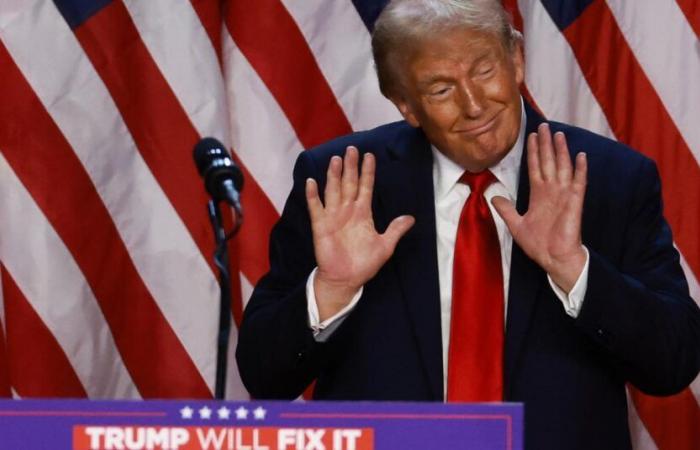In advance, a neck-and-neck race was predicted here and there, but Donald Trump was already certain of victory on election night. An overview of the most important questions now is who will be the next president of the United States.
1. What happened on election night?
What seemed to be a tight race turned out to be a clear victory. Donald Trump will be the next president of the United States. Swing state North Carolina was soon assigned to him by various news media, and Pennsylvania later also followed. Crucial states such as Michigan and Wisconsin, where opponent Kamala Harris should have performed strongly, also turned out to her disadvantage.
2. Is this a tough defeat for Harris?
It is indeed a heavy defeat for Harris. Democrats were hopeful, partly because of the positive polls and Harris’ latest campaign rallies. The race seemed to be neck and neck, but in reality Trump turned out to be considerably stronger.
Trump wins more votes than expected, especially among minorities, which surprised Democrats and greatly reduced Harris’ chances.
3. How could the polls be so far off?
An important factor seems to be the weighting within polls. Where Democrats had a lead among college-educated and suburban female voters, this was often seen as decisive overall in polls.
Trump scored unexpectedly well among minorities, such as Latin American voters, who traditionally vote Democratic. This success for Trump, which pollsters had not anticipated, is doing Harris’s worst.
4. What does this win mean for Trump?
If Trump not only wins the Electoral College but also the popular vote wins, this would increase his support base. This could provide him with the necessary political stability for the coming years. Trump has also won a majority in Congress, which gives him a lot of room to implement his policies.
Trump therefore has a stronger position than in his previous term.
5. What consequences does this have for Europe?
For Europe, a new term of Trump could be a wake-up call. Trump’s plans include higher import tariffs, possibly also for European countries, which would have an economic impact.
In addition, Trump is critical of NATO and support for Ukraine, which would force European countries to become more self-sufficient in defense.






